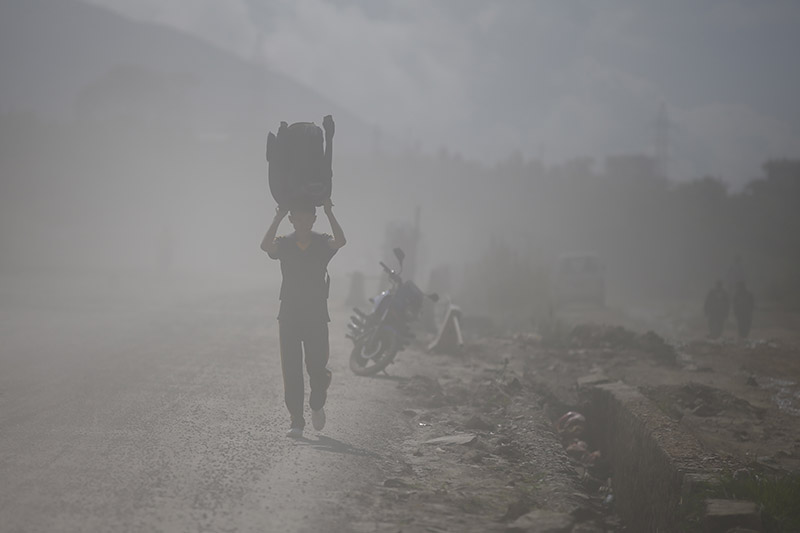Global experts call for new approach to tackle air pollution
- Air quality metrics must be placed at the heart of UN Sustainable Development Goals
- Access to clean air should be a human right
- Air pollution should be classified as a ‘disaster’
KATHMANDU: University of Birmingham experts have joined forces with counterparts in Nepal and beyond to call for a new approach to help resolve health, social and economic problems associated with air pollution in the global south’s most highly polluted regions.
Delegates at a two-day workshop in India, convened by Prof. Francis Pope and Dr. William Avis, from the University of Birmingham, and Prof. Mukesh Khare, from the India Institute of Technology, Delhi, called for air quality metrics to be incorporated into several of the 17 UN Sustainable Development Goals, most notably SDG3 – Good Health and Well-being.
The workshop also proposed air pollution to be treated as a disaster, in the same way as natural events such as earthquakes and forest fires.
Bhupendra Das, from Tribhuvan University addressed delegates at the conference, held in the Indian capital, speaking about the impact of air pollution on people in Nepal and its capital city Kathmandu.
It also called for access to clean air to be considered as a basic human right, as researchers at the workshop launched a special scoping study which highlights the health threat to an estimated 46,000 or more people living and working on the streets of Delhi.
The city’s pavement dweller community is mirrored in other Indian cities – thousands of men, women and children at risk of serious illness and death because of their constant exposure to dangerous levels of air pollution.
A research team led by Dr William Avis and involving Monika Walia and Dr Bidhu Mahapatra, from Population Council – India, studied several locations. They discovered that pavement dwellers were frequently exposed to severe or hazardous levels of particulate matter (PM) air pollution which could lead to conditions such as acute or chronic lung disease – one of the most common causes of death among this group of citizens.
The ASAAP India (A Systems Approach to Air Pollution India) workshop brought together partners from India, Africa, Asia, Europe and US to explore how cities such as Delhi can better understand how to tackle air pollution.
Together with IIT Delhi (IITD), All India Disaster Mitigation Institute (AIDMI), Population Council – India, and Urban Management Centre (UMC), University of Birmingham experts led the workshop, which was attended by British Deputy High Commissioner Jan Thompson.






